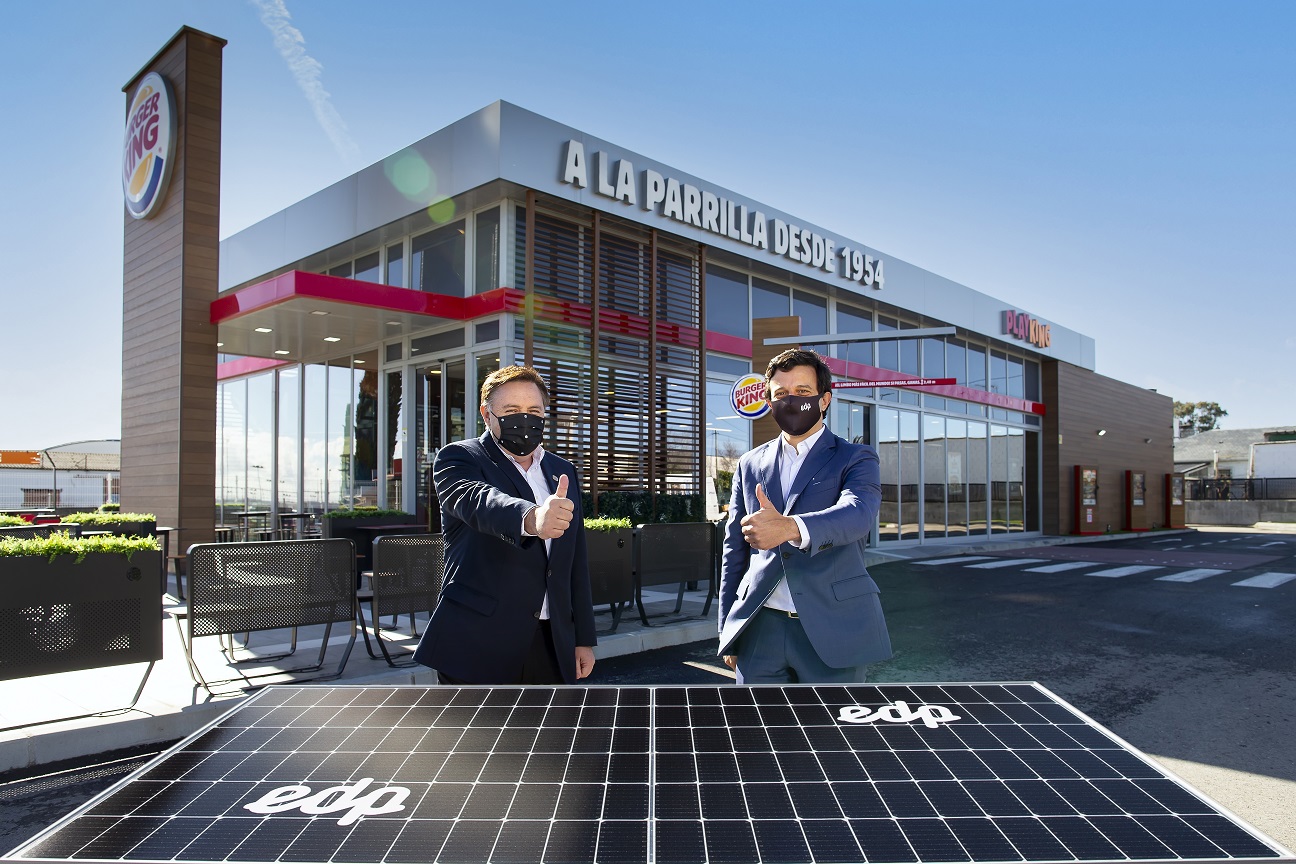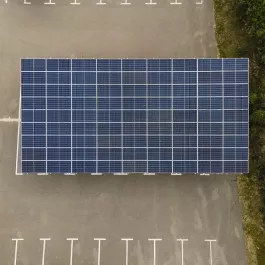
Burger King® and EDP will produce the solar energy needed to cook 39 million hamburgers a year

The solar energy generated in the restaurants will prevent the emission of more than 2,300 tonnes of CO2 each year, an impact on air quality similar to that of 150,000 new trees.
Burger King® España, whose operating rights in Spain and Portugal are owned by Restaurant Brands Iberia, has reached an agreement with EDP, a leading international energy group in renewable energy, to install photovoltaic panels in nearly 300 restaurants in Spain. Through this agreement, Burger King reinforces its commitment to integral sustainability and energy savings in the development of its activity, promoting the self-consumption of renewable energy in its restaurants.
The energy self-consumption plan will be implemented during 2021 in the chain's nearly 300 free standing model restaurants (independently built, chalet-style restaurants). In addition, newly built free standing restaurants will incorporate solar self-consumption.
In total, the plan involves the installation of more than 12,000 photovoltaic modules that will occupy an area of 25,000 square metres, equivalent to almost 4 football pitches.
The restaurant chain's self-consumption installations will have a total installed power of more than 5 megawatts, which will generate energy equivalent to the average electricity consumption of more than 2,000 homes. With this energy it will be possible to cook 39 million hamburgers, about 40% of the total number of hamburgers the chain serves per year.
At the same time, the commissioning of these facilities will prevent the emission of more than 2,300 tonnes of CO2 each year, a positive impact on air quality similar to that of 150,000 new trees.
The agreement between the two companies includes the design, construction and commissioning of the installations in the restaurants by EDP, which will manage the installations for the first 15 years through an agreement that will be developed as a service ('as a service') for the sale of 100% renewable electricity. This advantageous contractual arrangement provides long-term stability and visibility of energy costs.
"We are very pleased to be able to announce this ambitious plan developed together with a strategic partner in sustainability, such as EDP, which contributes to reducing the carbon footprint of our restaurants, which are the heart of our business," said Gregorio Jiménez, CEO of Burger King® Spain and Portugal.
For the Commercial Director of EDP Spain, Miguel Fonseca, "with this strategic alliance we will support Burger King in its commitment to energy savings, efficiency and environmental protection, while this agreement will make a decisive contribution to the promotion of distributed generation in Spain. For EDP, it reflects the close relationship we maintain with our customers, providing them with the most innovative energy solutions to promote their competitiveness".
This project is part of King Planet, the environmental sustainability strategy of Burger King® Spain, which has two main areas of action: the reduction of the carbon footprint and the reduction of the plastic footprint. "At Burger King® Spain we are working to implement measures that make our restaurants increasingly sustainable, from the sustainable techniques and materials used in the construction of the buildings, to the type of lighting used or the responsible management of water and waste generated in our premises. In addition, from 2019 we are committed to promoting the Free Standing format in newly opened restaurants, designed to reduce their environmental impact", said Gregorio Jiménez.
Likewise, one of the most relevant projects within the King Planet strategy is the plastic reduction policy that Burger King® began to implement in 2019. One of its first measures was to replace plastic straws with more sustainable alternatives. This policy, which will end in June 2021, will allow Burger King® to save more than 500 tonnes of plastic.




